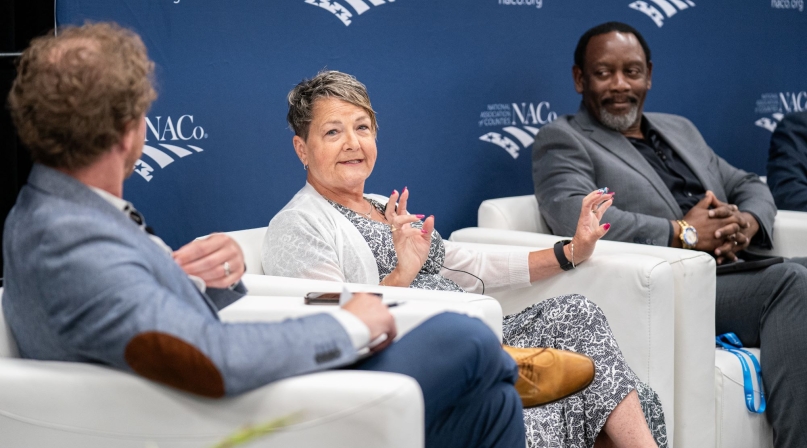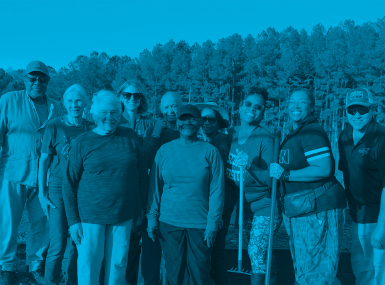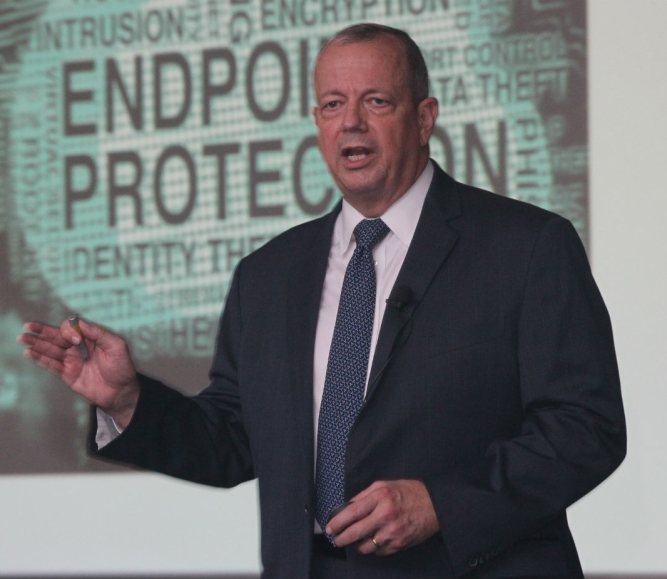Counties could heal dissatisfaction with democracy

Key Takeaways
When voter enthusiasm is waning and the national mood seems stuck in neutral, the United States is not alone.
Studies by the Pew Research Center over six years have indicated a multilateral dissatisfaction with representative democracy, from Canada to Germany to Kenya and Nigeria.
“This problem of distrust is not going to be solved at the national level,” Rachel Dean Wilson said during a July 14 summit — “Navigating Current Global Trends Across Western Democracies.” She’s the managing director of the German Marshall Fund’s Alliance for Securing Democracy and U.S. Elections.
When political tensions threaten to further divide Americans, it falls to county governments to build on connections and demonstrate a responsiveness that engenders trust and confidence.
“Each time we go through a crisis for a period of time, we come out of it stronger,” said Orange County, Fla. Mayor Jerry Demings. “Right now, I think we’re in one of those defining moments in the history of our nation, where we’re polarized around political issues and the two-party system.”
The simple but challenging way for counties to do that is not only by performing their roles effectively and reliably, but by emphasizing transparency and demonstrating the public’s role in participatory democracy, panelists noted.
Wilson offered examples of national governments that spurred efforts that led ground-up trust in democratic institutions, rather than taking heavy-handed top-down approaches. By building relationships with community and civic organizations, Sweden develops the trust that leads residents to know how to find answers about elections and government. The Australian Election Commission launched a “stop and consider” campaign to encourage social media users to be thoughtful in posting to social media.
“Build the build the connections now and those channels of communications before you really need them,” Wilson said.
Two county officials who have overseen elections detailed the outreach efforts they hoped would win over residents skeptical of a government function that has seen outsized attention, and pressure, from the public.
Susan Kiepke, Davison County, S.D.’s auditor, recruited her friends’ college-aged children to work a post-election audit, giving them experience and perspective to share with their peers and their parents.
“They were excited because they were in a new process and got to experience that firsthand,” she said.
Curtis Koch, Davis County, Utah’s auditor, previously served as county clerk, and he has invited the public to “election integrity nights,” where they could ask him and his staff any question, even questions that would otherwise be seen as offensive.
Despite some long nights and challenging talks, he saw them as “growing pains” toward a better understanding.
“I walked away as an election official more educated about what the public was seeing [and] they walked away more educated, and when we have follow-up conversations, even if they still didn’t have full faith and confidence, you could tell the education was there and we were talking on a higher level the next time,” he said.
In a decade that included three traumatic and destructive volcanic events, Hawaii County, Hawaii has challenged itself to win the confidence of its residents and did so by employing the local philanthropic community to expedite aid. The CHANGE grant program sought out organizations addressing various local aspects of the community — community and economy, health and wellness, arts and culture, natural environment, government and civics and education. In doing so, Hawaii County Councilmember Sue Lee Loy said she hopes to be able to quickly demonstrate the county’s responsiveness to residents’ needs, and faster than the typical deliberative government pace.
“The best way to be prepared is to always be prepared to do it before, during and after,” she said. “What we found is that our nonprofit agencies were the very first that could mobilize quickly. They lived in the communities, they already stuck together, they all had a mission.”
Richard Wike, director of the Pew Global Attitudes Research division, said studies found Americans are often more divided ideologically than others around the world, with higher levels that effective polarization.
“Not only do we disagree with the other side, but [people] don’t like people on the other side, you don’t want to live near them, you don’t want your children to marry people who are politically different from you,” he said.
That could result, he said, from the United States’ entrenched two-party system.
Charisse Phillips, a former U.S. Foreign Service officer, stressed the importance of emphasizing normalcy, both in terms of democratic processes and social mores, drawing a contrast to abnormal, antisocial behavior that can sow dissent.
“The important thing is to make sure people understand how the process is supposed to work — by underscoring our shared values, talking less about how polarized we are and more about what we have in common,” she said.
Wike noted that framing issues in a way that reminds people of our shared national identity as Americans can reduce some of these polarizations, particularly election officials who evoke patriotism.
“There’s experimental research for example to show you can reduce affective polarization [by] priming people to think about the 4th of July or about the U.S. Olympic team or these [other] things that bring us all together.”
Related News

America’s Counties Recognize April 2025 as National County Government Month
America’s Counties this month are joining the National Association of Counties (NACo) in recognizing National County Government Month (NCGM). Throughout April, counties will honor the county workforce, educate residents about local programs and services and celebrate the county role in the intergovernmental partnership.

Celebrate 2025 National County Government Month
Join us in celebrating National County Government Month (NCGM) 2025! Since 1991, NACo has encouraged counties to utilize NCGM to actively promote county roles and responsibilities in serving residents.

County News
Defending the Heartland: On the Front Line of Democracy and Its Defense

